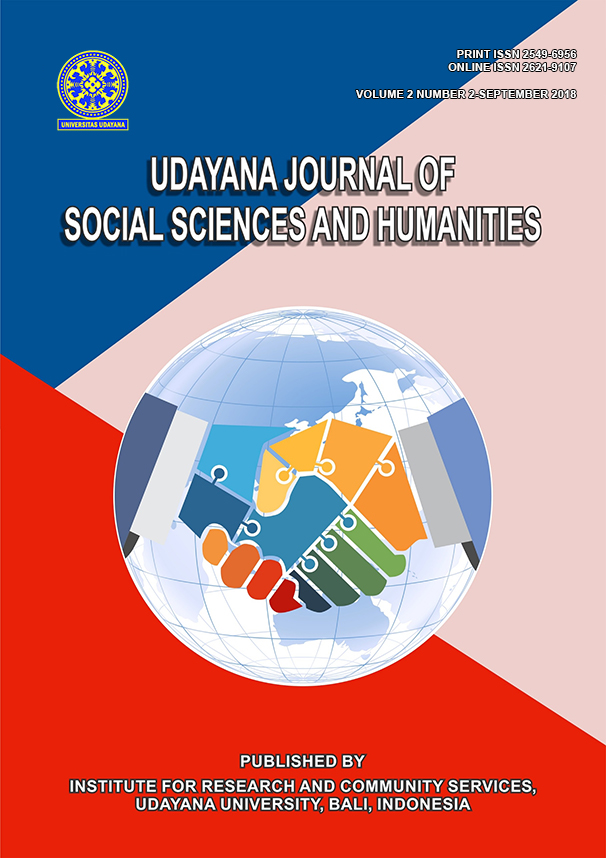Migration in Denpasar City: Study of Adaptation Strategy and Its Implication of Social Culture and Environment
Abstract
Denpasar City, both as the capital of Bali as well as the center of trade, education, and tourism destinations. This potential is a strong attraction for the migrants to come and settle in Denpasar City. The purposes of this study are: 1) to get an overview of the characteristics of the migrants; 2) understanding the pattern of migrant adaptation; and 3) to analyze its implications of socio-cultural and environment. The approach method used is descriptive qualitative. Data collection used through structured interviews, observation, and Focus Group Discussion. Based on the analysis, this study found that the average age of migrants classified as productive, is in the range 30-40 years. The level of education of migrants is quite good, mostly high school and even some university grade. The pattern of adaptation that is done tends to choose clustered residence based on the similarity of ethnic and religion background. The socio-cultural implications have not been so apparent, that local cultures are still dominant. The implications for the environment appear to be quite significant, which is marked by the increasing number of land conversion for various designations. The emergence of slums and semi-permanent settlements built to meet the needs of many migrants throughout the sub district in Denpasar. This condition then injured the icon of Denpasar as a cultural city. Beside that, the quality of environments and raw water of the population has decreased, caused due of domestic household waste and wastewater of the garment industry and laundry services.






